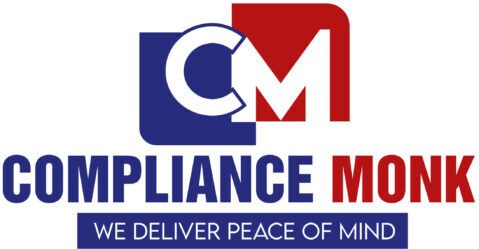
In today’s digital world, a handwritten signature won’t cut it—you need something faster, safer, and legally recognized. That’s where a Digital Signature Certificate (DSC) steps in.
Whether you’re filing taxes, signing contracts, or submitting documents to government portals, a DSC ensures security, authenticity, and legal validity in just a few clicks. No more printing, scanning, or chasing paperwork—just sign, seal, and send electronically!
If you’re still relying on old-school signatures, it’s time to upgrade to a DSC.
Table of Contents
🔐 What is a Digital Signature Certificate (DSC)?
A DSC is a cryptographically secure digital key issued by Certifying Authorities (CAs) to authenticate and validate the identity of an individual or entity. It is essential for e-filing, digital document signing, and secure transactions across various government and business platforms.
DSCs use public-key encryption to create secure digital signatures that ensure data integrity and prevent tampering. These certificates are commonly used in e-filing for income tax, GST, MCA, e-tendering, trademark registration, and more.
⚖️ Is a Digital Signature Certificate Mandatory?
Yes, DSCs are legally required for:
✔️ Company Directors & Professionals – Filing MCA, GST, and Income Tax returns
✔️ Government & Business Transactions – e-Tendering, e-Auctions, and e-Procurement
✔️ Foreign Trade & Compliance – Import-Export Code (IEC) registration, DGFT filings
✔️ Secure Business Communications – Digital contracts, agreements, and bank transactions
🎯 Types of Digital Signature Certificates (DSC)
1️) Class 3 Digital Signature Certificate (DSC)
🔹 The highest level of security, required for most government and business transactions.
🔹 Comes with two components:
- Signature Certificate (for signing documents)
- Encryption Certificate (for securing sensitive data)
🔹 Essential for e-Tendering, GST filing, e-Bidding, MCA filing, and more
🔹 Available for:
✔️ Individuals – Professionals, business owners, and consultants
✔️ Companies/Organizations – Corporations, NGOs, Trusts, and Government Departments
2️) DGFT Digital Signature Certificate (For Importers & Exporters)
🔹 Specifically issued for businesses involved in foreign trade and DGFT-related activities
🔹 Enables secure and seamless import-export licensing and documentation
📄 Documents Required for DSC Application
To apply for a DSC, you’ll need:
✅ PAN Card (for identity verification)
✅ Address Proof (Aadhaar, Passport, Voter ID, etc.)
✅ Registered Business Proof (if applying for an organization)
✅ Recent Photograph & Signature
With Compliance Monk, the entire process is 100% online—no paperwork, no courier, just seamless digital verification.
🔄 DSC Renewal – Keep Your Digital Signature Active!
A DSC typically comes with a validity of 2 years. Once expired, renewal is mandatory. As per CCA guidelines, renewal requires fresh identity verification.
With Compliance Monk, renewing your DSC is just as simple as getting a new one!
✔️ Apply for DSC renewal online before or after expiry
✔️ Seamless verification process – no unnecessary delays
✔️ Same pricing as a new DSC – no hidden charges
📌 How to Apply for a Digital Signature Certificate with Compliance Monk?
💻 Step 1: Choose your DSC type (Class 3 DSC or DGFT DSC)
📄 Step 2: Submit your details and upload required documents
🔍 Step 3: Complete online identity verification
🔑 Step 4: Receive your DSC and secure USB token
That’s it! No lengthy paperwork, no hassle—just a smooth, secure, and efficient process!
📞Contact Compliance Monk today!
FAQs
1. What is a Digital Signature Certificate (DSC)?
A Digital Signature Certificate (DSC) is a secure digital key issued by a Certifying Authority (CA) to authenticate an individual’s or entity’s identity. It is used for digitally signing documents, ensuring data integrity, and facilitating secure online transactions.
2. Why do I need a DSC?
A DSC is required for various online transactions, including:
- MCA e-filing (Company incorporation, annual filings)
- Income Tax & GST filings
- E-Tendering, e-Auctions, and e-Procurement
- Import-Export (DGFT) transactions
- Signing contracts, agreements, and bank transactions
3. What are the different types of DSCs?
There are three types of DSCs:
- Class 3 DSC: The highest level of security, used for e-Tendering, GST filing, MCA filing, and online transactions.
- DGFT DSC: Specifically for importers and exporters to facilitate DGFT-related filings.
4. Who can apply for a DSC?
Individuals, businesses, organizations, government agencies, and professionals like CA, CS, and lawyers can apply for a DSC.
5. How long is a DSC valid?
A DSC is typically valid for two years and must be renewed before expiration to continue using it.
6. What documents are required for DSC application?
For individuals:
- PAN Card
- Address Proof (Aadhaar, Passport, Voter ID, etc.)
- Recent Photograph & Signature
For organizations:
- Business Registration Proof
- Authorized Signatory’s PAN & ID Proof
7. How can I apply for a DSC online?
With Compliance Monk, the process is fully online:
- Choose the type of DSC (Class 3 or DGFT).
- Submit your details and upload the required documents.
- Complete identity verification online.
- Receive your DSC and secure USB token.
8. What is a USB Token, and why is it required?
A USB token is a secure hardware device used to store and protect your DSC. It ensures that your digital signature is not misused and remains confidential.
9. How can I renew my DSC?
Renewing a DSC requires fresh identity verification. You can apply for renewal through Compliance Monk before or after expiry, following the same process as a new DSC application.
10. Is a DSC legally valid?
Yes, DSCs are legally recognized under the Information Technology Act, 2000, and hold the same legal status as physical signatures for digital documents.
11. How long does it take to get a DSC?
With Compliance Monk, you can obtain your DSC within 24-48 hours, provided all documents and verifications are completed on time.
12. Can I use one DSC for multiple purposes?
Yes, a Class 3 DSC can be used for multiple applications, including e-filing, GST, e-Tendering, and more, based on its issued purpose.
13. How do I ensure the security of my DSC?
- Store your USB token securely.
- Do not share your DSC credentials.
- Use only authorized platforms for DSC-based transactions.
14. What happens if I lose my USB token?
If your USB token is lost, you will need to apply for a new DSC. For security reasons, DSCs cannot be recovered or reissued from a lost token.
